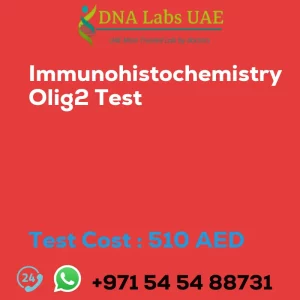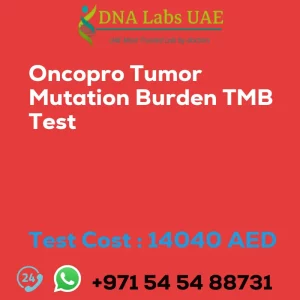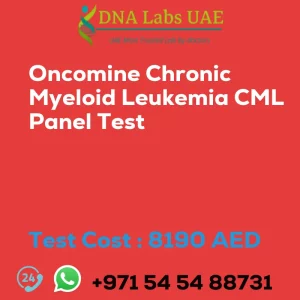IMMUNOHISTOCHEMISTRY BETA-CATENIN Test
Test Name: IMMUNOHISTOCHEMISTRY BETA-CATENIN Test
Components: Beta-catenin protein detection
Price: 500.0 AED
Sample Condition: Submit tumor tissue in 10% Formal-saline OR Formalin fixed paraffin embedded block. Ship at room temperature. Provide a copy of the Histopathology report, Site of biopsy and Clinical history.
Report Delivery: Sample Daily by 6 pm; Report Block: 5 days, Tissue Biopsy: 5 days, Tissue large complex: 7 days
Method: Immunohistochemistry
Test type: Cancer
Doctor: Oncologist, Pathologist
Test Department:
Pre Test Information: Provide a copy of the Histopathology report, Site of biopsy and Clinical history.
Test Details
Immunohistochemistry (IHC) is a technique used to detect specific proteins in tissue samples. In the case of the beta-catenin test, it is used to detect the presence and localization of the beta-catenin protein in cells.
Beta-catenin is a key component of the Wnt signaling pathway, which plays a crucial role in embryonic development and tissue homeostasis. Abnormal activation or dysregulation of this pathway can lead to various diseases, including cancer.
The beta-catenin test is commonly performed on tissue samples, typically obtained through biopsies or surgical resections. The tissue is fixed and embedded in paraffin, and thin sections are cut for further analysis.
To perform the beta-catenin test, the tissue sections are first deparaffinized and rehydrated. Antigen retrieval is then performed to unmask the target protein, as formalin fixation can cause protein cross-linking and epitope masking. This is typically achieved by heat-induced epitope retrieval using a microwave or pressure cooker.
Next, the tissue sections are incubated with a primary antibody specific to beta-catenin. The primary antibody binds to the target protein if it is present in the tissue. After washing off any unbound primary antibody, a secondary antibody is applied. This secondary antibody is conjugated to a detection system, such as an enzyme or a fluorescent molecule.
After incubation with the secondary antibody, excess unbound antibody is washed off, and the detection system is visualized. In the case of an enzyme-based detection system, a chromogen substrate is added, resulting in the formation of a colored product at the site of the target protein. This allows for the visualization of beta-catenin expression under a microscope.
The intensity and distribution of beta-catenin staining can provide valuable information about the cellular localization and activation status of the protein. Abnormal beta-catenin expression patterns, such as nuclear accumulation or cytoplasmic localization, may indicate dysregulation of the Wnt signaling pathway and can be indicative of certain diseases, including cancer.
In summary, the immunohistochemistry beta-catenin test is a valuable tool for studying the expression and localization of the beta-catenin protein in tissue samples. It can provide insights into the role of beta-catenin in normal and pathological processes and aid in the diagnosis and prognosis of various diseases, particularly cancer.
| Test Name | IMMUNOHISTOCHEMISTRY BETA-CATENIN Test |
|---|---|
| Components | |
| Price | 500.0 AED |
| Sample Condition | Submit tumor tissue in 10% Formal-saline OR Formalin fixed paraffin embedded block. Ship at room temperature. Provide a copy of the Histopathology report, Site of biopsy and Clinical history. |
| Report Delivery | Sample Daily by 6 pm; Report Block : 5 days Tissue Biopsy : 5 days Tissue large complex : 7 days |
| Method | Immunohistochemistry |
| Test type | Cancer |
| Doctor | Oncologist, Pathologist |
| Test Department: | |
| Pre Test Information | Provide a copy of the Histopathology report, Site of biopsy and Clinical history. |
| Test Details |
Immunohistochemistry (IHC) is a technique used to detect specific proteins in tissue samples. In the case of the beta-catenin test, it is used to detect the presence and localization of the beta-catenin protein in cells. Beta-catenin is a key component of the Wnt signaling pathway, which plays a crucial role in embryonic development and tissue homeostasis. Abnormal activation or dysregulation of this pathway can lead to various diseases, including cancer. The beta-catenin test is commonly performed on tissue samples, typically obtained through biopsies or surgical resections. The tissue is fixed and embedded in paraffin, and thin sections are cut for further analysis. To perform the beta-catenin test, the tissue sections are first deparaffinized and rehydrated. Antigen retrieval is then performed to unmask the target protein, as formalin fixation can cause protein cross-linking and epitope masking. This is typically achieved by heat-induced epitope retrieval using a microwave or pressure cooker. Next, the tissue sections are incubated with a primary antibody specific to beta-catenin. The primary antibody binds to the target protein if it is present in the tissue. After washing off any unbound primary antibody, a secondary antibody is applied. This secondary antibody is conjugated to a detection system, such as an enzyme or a fluorescent molecule. After incubation with the secondary antibody, excess unbound antibody is washed off, and the detection system is visualized. In the case of an enzyme-based detection system, a chromogen substrate is added, resulting in the formation of a colored product at the site of the target protein. This allows for the visualization of beta-catenin expression under a microscope. The intensity and distribution of beta-catenin staining can provide valuable information about the cellular localization and activation status of the protein. Abnormal beta-catenin expression patterns, such as nuclear accumulation or cytoplasmic localization, may indicate dysregulation of the Wnt signaling pathway and can be indicative of certain diseases, including cancer. In summary, the immunohistochemistry beta-catenin test is a valuable tool for studying the expression and localization of the beta-catenin protein in tissue samples. It can provide insights into the role of beta-catenin in normal and pathological processes and aid in the diagnosis and prognosis of various diseases, particularly cancer. |







